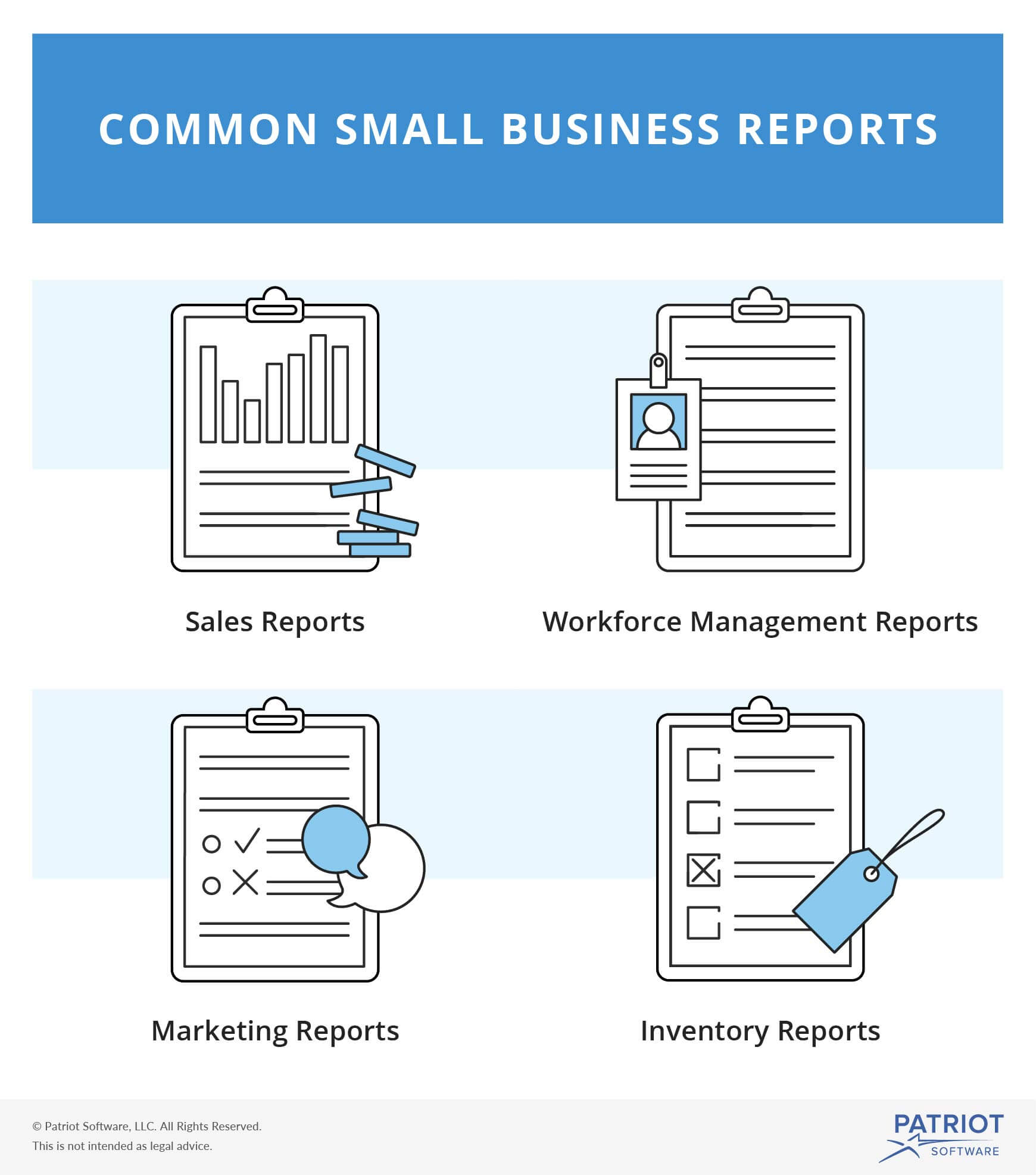Every business relies on reports to know just how they’re doing. New business owners often struggle to understand the real value of reports and which matter most, and this can lead to them making the wrong choices. Bloomberg estimates 8 out of 10 new businesses fail in the first 18 months—that’s a startling 80%.
How do you keep your business from ending up like another percentage? You need to make smart choices about your money. What’s the biggest reason these small businesses fail to take off? Too little financing. Poor money management is a recipe for disaster. Luckily, you don’t need a degree in accounting to handle the basics of reporting yourself. The better you’re able to analyze your research, the smarter you’ll be about your own small business.
Common small business reports
So, which reports are actually worth your time? We aren’t suggesting you need to create a comprehensive report for every aspect of your business, but some key areas are worth monitoring regularly. These figures will become the foundation of your business. They’ll help you make better choices and anticipate growth.
Here are the top reports you should consider for your small business:
- Sales reports – Without sales, you have no business. Reporting your current, past, and future sales is a key way to evaluate your business success. If you’re using a POS system or accounting system, you likely have sales reports readily available to you.
- Workforce management reports – This type of report analyzes your most valuable asset: employees. Through these, you can optimize scheduling and payroll to make the most of your team.
- Marketing reports – Are you spending too much on marketing without seeing any results? Maybe you just need to check your email lists and clean them regularly. But you’ll definitely need a detailed report on ROI for your marketing campaigns.
- Inventory reports – Finally, what do you have on hand for your business? This can be as simple as a checklist ranking your products, materials, or supplies.
Depending on your type of business, you might not need all of the reports above. For instance, if you don’t sell products, you might choose not to include an inventory report in your weekly arsenal. However, if you’re not sure what reports you need, start out with all of the above. You’ll see which you value most and which you can do without.

Making the most of reports
Now that you know what reports you should consider for your business, let’s talk about how to best use these reports. Reports aren’t going to automatically solve all of your business problems. They’re easy to brush aside and let pile up on your desk. However, taking these reports seriously as a business owner will directly lead to success.
It’s not as simple as printing off your invoices, sales reports, and supply list. While you do need a clear way to invoice clients and regularly keep track of sales reports, these basic steps won’t lead to any business epiphanies on their own. There are key things that make some reports more successful than others.
Best practices for reporting:
- Actionable – Are your reports actionable? Do you provide enough context and information to make a decision?
- High-quality data – Don’t just include everything on a report. Only use your best data.
- Minimums – Don’t go overboard. There is such thing as too much information.
- Clear presentation – It’s easy to get confused if there isn’t any clear structure. Play with your reporting system until you create a clear structure for formatting and displaying information.
- Frequency – You likely don’t need to create a report every day, but you also don’t want to wait too long between reporting either. Weekly reports are a good starting point, and you can adjust as needed.
These are the foundation rules for solid reporting. The worst thing you can do for your business is to fail to create reports at all. Remember, your reports shouldn’t just be a chore. They’re a way to analyze the current status of your business and prepare for future changes. They show you when you need more employees when you need more products, and how to fund your business intelligently.
Finally, once you have your reporting system established, you need a way to assess success. This is done by identifying key performance indicators (KPIs). KPIs are data points used to track your business. They show growth over time, and they’re a legitimate form of measurement you can count on. Every business will have different KPIs. It depends on what you value most in your line of work.
Common key performance indicators include:
- Number of new clients
- Sales value
- A rate of client churn
- Profits and losses
- Marketing success
Create a list of clear KPIs you’ll use to analyze your own company. From there, you can put your reports to work. You’ll be surprised by just how big of a difference these numbers make in your day to day life. Start reporting today. Your business counts on it.
These views are made solely by the author.
